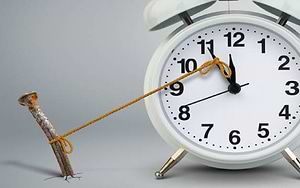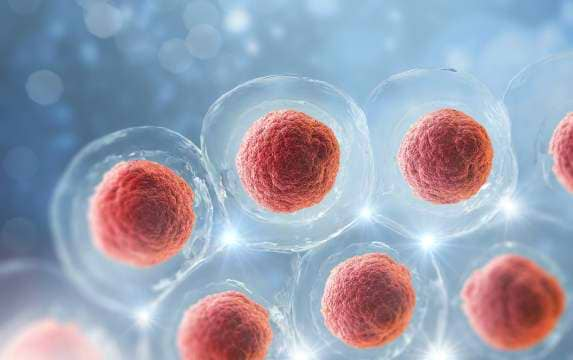Delayed ejaculation is a condition in which it takes the man a longer than desired amount of time to reach orgasm and ejaculation during sexual stimulation, or without achieving ejaculation at all.
But how should we define a “prolonged amount of time” to achieve ejaculation? There are those who define it as being longer than 30 minutes. As a sexologist, I prefer the definition that considers the choice of the person. When he wants to reach climax and cannot achieve it, it frustrates him. It is natural that men occasionally experience delayed ejaculation, but this still does not turn the situation into a problem. When it is a state that repeats itself all the time and causes difficulty, then we can consider it to be delayed ejaculation.
Types of delayed ejaculation
Delayed ejaculation could occur for different time frames.
- Temporary delayed ejaculation – the previous act was normal, and after it was a state of delayed ejaculation.
- Situational delayed ejaculation – the problem only occurs in certain situations. For example, during masturbation everything is normal, and when having sexual intercourse there is a problem, or with one partner there is difficulty, while with another, there isn’t.
- Constant delayed ejaculation – appears in every situation and exists all the time.
A condition of delayed ejaculation is not dangerous health-wise, but it can cause no small amount of difficulty in sex life and in relationships with partners.
Reasons for delayed ejaculation
There are many reasons for delayed ejaculation, some are psychological-social, some are health-medically related.
Psychological-social reasons
- Prohibitions connected with religion or culture can also have an effect. For example, a prohibition of male masturbation. This prohibition causes religious youth to associate sexual pleasure and ejaculation to something highly negative that much be avoided at all costs (”Karet” prohibition – being “cut off”). This can cause, among other things, delayed ejaculation.
- Depression and anxiety, each of them can cause damage to the libido, which in turn, can cause delayed ejaculation.
- Relationship difficulties: defective communication between partners, suppressed anger, disappointment, wounding, can cause a worsening of the problem.
- Inherent difficulties in the sexuality of the man that can also cause the problem to appear. For example, men who are addicted to pornography are addicted to a high intensity of visual stimulation that does not exist in sexual intercourse in reality – something that can cause difficulty in reaching climax during sexual intercourse where masturbation is not a problem at all. This is an example of a case of situational delayed ejaculation.
- Emotions involved which are related to a decision regarding conception.
Health-medical reasons
There are medicines and chemicals that could cause a delay in ejaculation:
- Medicines for example of the SSRI family (selective serotonin re-uptake inhibitors and antidepressants)
- Medicines for the reduction of hypertension
- Medicines for prostate treatment
- Alcohol
- Drugs
Physical medical reasons that could cause delayed ejaculation:
- Nerve damage to the spinal cord or the pelvis
- Prostate surgery that caused nerve damage
- Heart disease which causes damage to pelvic blood flow
- Infections, especially of the urinary tract or the prostate
- Neuropathy, stroke and Multiple Sclerosis
- Hypothyroidism
- Diabetes
- Pain disorders during ejaculation or close to ejaculation There are people who suffer pain during ejaculation or close to ejaculation. This is likely to cause the desire to prevent ejaculation in order to avoid the pain.
- Aging – natural changes in sexuality occur during aging. This could be one of them.
Potential consequences of delayed ejaculation
Like every problem of sexual functioning, in this case too there are consequences on the relationship that are likely to cause additional difficulties with sexuality:
- damage to enjoyment of sexual intercourse due to the difficulty of the man in ejaculating
- difficulty in getting pregnant for couples that are trying, to the point of referral for fertility treatment
- performance anxiety – the increase in stress and frustration due to difficulty in achieving orgasm is likely to lead to performance anxiety later on
- decrease in libido – the desire to avoid an experience of pressure and failure due to the difficulty in ejaculation can even disturb and reduce the woman’s libido, not just the man’s.
- Pain disorders in the woman – prolonged penetration is likely to result in decreased lubrication of the woman and then also to pain and even microscopic injuries of the woman’s vagina
- Disappointment of the female or male partner
In summary, delayed ejaculation can be caused by psychological, medical problems and/or a response to medication. In itself it does not constitute a medical risk, but it could decidedly cause difficulties and damage to self-esteem, sexuality and intimate relationships.
At the start, it is important to contact a family practitioner in order to rule out medical or medicinal reasons. After we understand what the reason for delayed ejaculation is, we can determine an appropriate treatment solution. If we identify emotional factors, referral for sex therapy is recommended, where we will determine if there are habits that can be changed, training will be given for performing exercises, as will treatment guidance. If difficulties were caused to sexuality and to the relationship, we will also focus on them during sex therapy. It is possible to come to therapy alone or as a couple.
The Company hereby clarifies that the information contained on the website is for informational purposes only, and is not intended to be a substitute for professional medical and healthcare advice, and does not constitute medical advice or opinion. Always seek the advice of your physician or other qualified health provider with any medical condition or question you may have regarding a medical condition.





